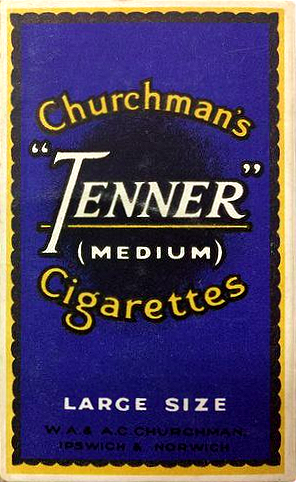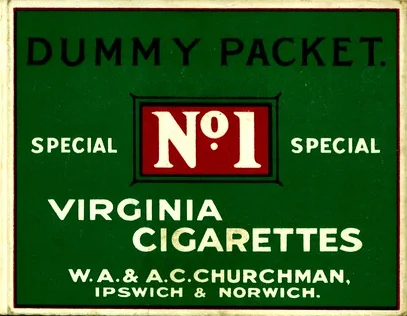CHURCHMAN'S

Churchman’s was founded in 1790 by William Churchman, who opened a pipe tobacco shop in Ipswich, Suffolk. In 1888 his grandsons William Alfred and Arthur Charles Churchman took over the business and started to produce cigarettes as well, using one of the first automatic rolling machines. Their flagship product was Churchman’s No. 1, a cigarette with tobacco mixed with other additives. In 1902 Churchman’s joined the Imperial Tobacco Company, a company formed to counter the competition of American tobacco companies. Churchman’s distinguished itself for the production of collectible cards, especially on the theme of sports, which it inserted in cigarette packs. World War I was a crucial moment for the spread of cigarettes among soldiers and civilians. Cigarettes were considered as a moral support for the troops and were distributed for free or sent by families. Women also started to smoke cigarettes, breaking the social taboos of the time. Churchman’s took advantage of this situation to increase its sales and its popularity. Between the two world wars, Churchman’s expanded its factory in Ipswich and focused on the production of cigars, which reached one million per day. In 1961 it merged with two other tobacco companies, Lambert & Butler and Edwards, Ringer & Bigg, forming Churchman’s. In 1972 Churchman’s ceased to be an independent brand and was integrated into John Player & Sons, another subsidiary of the Imperial Tobacco Company. In 1992 the Ipswich factory was closed and production moved to Bristol.
